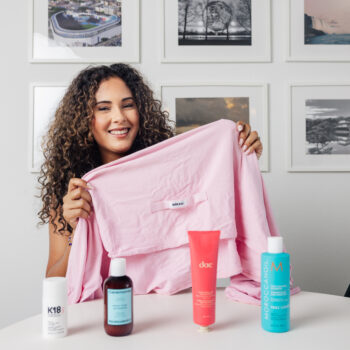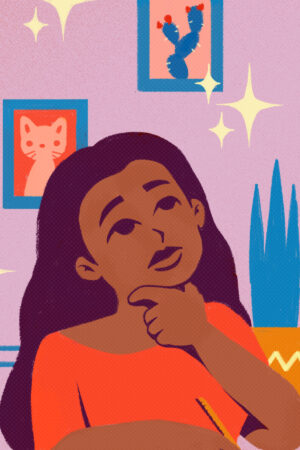Queen Sugar, a drama adapted by Ava DuVernay currently airing on Oprah’s OWN Network, is the most underrated story currently playing out on television. Now in its second season, Queen Sugar revolves around the three Bordelon siblings – Nova, Charley and Ralph Angel – who must best their differences and band together to run their late father’s sugarcane farm in rural St. Joseph county, Louisiana. Meanwhile, each of the Bordelons is grappling with heartbreak, betrayal and injustices from the criminal justice system, all while two families, the Boudreauxs and the Landrys, are attempting to encroach on the Bordelons’ land and take it as theirs.
In addition to oozing tension and providing an unsparing look at how the system shortchanges farmers of color, Queen Sugar has a stunning aesthetic that lingers on the natural beauty of Louisiana’s swamplands. That’s thanks, in part, to DuVernay’s commitment to seeking out a wide variety of new talent, particularly female directors, to helm a different Queen Sugar episode every week. This season, her roster includes Aurora Guerrero, an indie film director whose focus on intimacy, particularly in her first feature, the sweet and sad coming-of-age tale Mosquita y Mari, makes her a singular choice for Queen Sugar and beyond.
Remezcla chatted with Guerrero shortly after her episode of Queen Sugar (“What Do I Care For Morning”) aired about directing her first TV episode and her love of Almodóvar.
I read that Ava had asked you to direct an episode in Queen Sugar’s first season, but you couldn’t because of a timing conflict.
Yeah, she had reached out and at the time my baby was about, I don’t know, six months maybe? And the turnaround to do the episode was pretty short, so I would have had to organize her child care and also I would have been gone three weeks. My spouse was starting her new job – she’s a professor at Chapman – so at the time I was the primary person at home with her, with the baby, and…it would have really kind of pulled the rug from under my spouse and you know, the baby is so small. My being away for three weeks was too much and I couldn’t take her with me and I couldn’t really strap her on me while I was directing, it would have been so crazy. It was too much.
“I had to pass, and it was one of the hardest things I’d ever done. Because in this business, filmmakers like myself don’t often get opportunities like this.”
And so I ended up telling Ava that I couldn’t do it. And I told her why and she was really, really compassionate about it. She understood and was like, “It’s all good, I understand.” I asked her to please hopefully circle back around if there was a season two, and that I was wishing her well and stuff. I had to pass, and it was one of the hardest things I’d ever done. Because in this business, filmmakers like myself don’t often get opportunities like this. It is really hard to say I can’t, you know? Because you don’t know if that opportunity’s going to come back around. It was really hard to say no but I also knew, I felt, whatever Ava sort of touches does really well. And I was like there’s gotta be a season two! I gotta keep the faith that this sister’s going to come back and you know and ask me to do an episode and that’s how it panned out.
That’s so hard to do, because the instinct so often is “I have to take the gig, otherwise I’m never going to work again in my life.”
Yeah. To be honest with you, there were some people, some peers of mine, who were like, “Are you f’ing crazy? You just f’ed up.” That’s some of the response I got from the people around me. I think it’s just that fear: “Oh my god, this isn’t going to come back around!” That feeling, which I understand, you know? So yeah. It was an interesting moment for me.
How did you come to direct this particular Queen Sugar episode?
I think that’s a really good question that I’ve also been meaning to ask Ava about because…I wasn’t informed in terms of, we want you to direct this specific episode for x y and z, it was more like, they sent me an email and said “you will be directing this episode.” And I was like, “okay.” I did not know what my episode entailed until, like, 24 hours prior to my prep. I didn’t know. I had no idea.
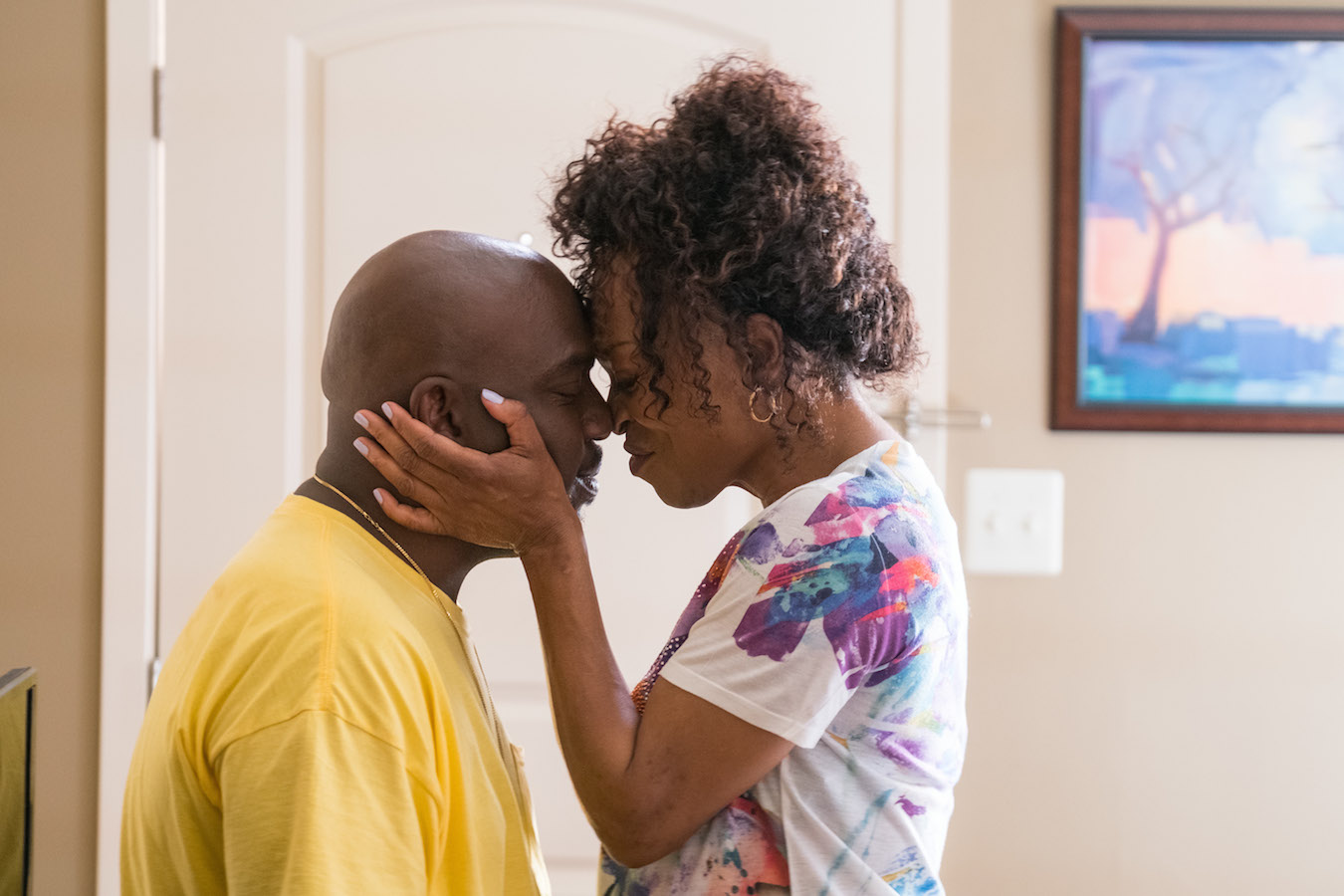
It’s very much an episode where tensions are coming to a head, but everyone makes it very clear that they’re not going to be intimidated by anyone else.
“Coming into television, I am stepping into someone else’s home, someone else’s kitchen… So Ava’s cooking up her recipes and she’s like come on in and bring in your Latin queer aesthetic to this.”
Yeah, no. Absolutely. I’m really, really happy that I got the episode that I got. And I don’t know what the next episodes are…so i can’t compare other episodes to mine but I felt like it was tailor-made for me. In the sense that not only are there these tensions that are kind of brewing and sort of set-ups that are happening, but there was a lot of romance in my piece. And, you know, given Mosquita y Mari and I’m exploring this flirtation and tension and budding romance, I was like, “Oh, I got the love episode!” I loved it. I definitely can say that I lean towards those storylines and was able to focus on that and bring some of my strengths, I think, to the episode in that regard. It was a perfect fit.
This is the first TV episode you’ve directed, right? I’m curious what that transition was like from short films to a feature to television.
I think what’s different in regards to the world that I know, which is the independent world. The world that for me…although it’s collective, there’s a driving vision or the seed that someone plants, if we’re all watering that seed and you keep pushing in the direction of how that you know plant is gonna grow. I’m used to being in that position in the independent world. So in some sense some people might describe that as having more control, or say, “So that is the world that I am familiar with.”
Coming into television, I am stepping into someone else’s home, someone else’s kitchen, who’s been cooking up some dope ass recipes. And it’s like, “Hey come into my kitchen and cook for me but I want you to use my recipes.” Follow my recipes. And so that’s different. Very different. For me, I knew that but I’d never experienced that before. So for me the challenge is how do you do that and still bring yourself to that recipe, right? And that’s something that Ava was very clear on: “The show has its style and vision and look and this and that, but I still want to see you in it.” Oh damn, how am I gonna do that? So Ava’s cooking up her recipes and she’s like come on in and bring in your Latin queer aesthetic to this, basically.
How did that start to fall into place?
I think as the prep started to happen, like at first when I got the script I was like, “Okay I’m in Ava’s writer’s room’s world, the show’s world.” So I’m very much sort of married to what’s happening in the script, you know. It’s a writer’s medium; the writers are really driving the show. It’s not like I can come in and be like, “I want to change this and I want to change that.” But then as prep started happening they were like, “You’ll be out and doing location scouting and talking to the production designer about what those worlds are looking like, and talking to the DP.”
And it was when those conversations started happening that I felt myself more and more sort of organically coming to the piece. Because I have my own tastes, how I was sort of seeing the episode and certain things, and that’s me right? When I’m reading, I’m understanding what’s on the page and I’m going to stay true to the text but i’m also allowed to find these places and figure out how the scene will play out, my interpretations of these things. So that’s when I felt like…my voice and my vision was intertwining with the writers and Ava’s vision for the show. So, you know, from location choices and spaces to what I was seeing, you know. What was hanging on the walls, stuff like that. Music choice. There’s space there to explore. At the moment I felt like there was space to explore I was like, “Boom. I’m in there.”
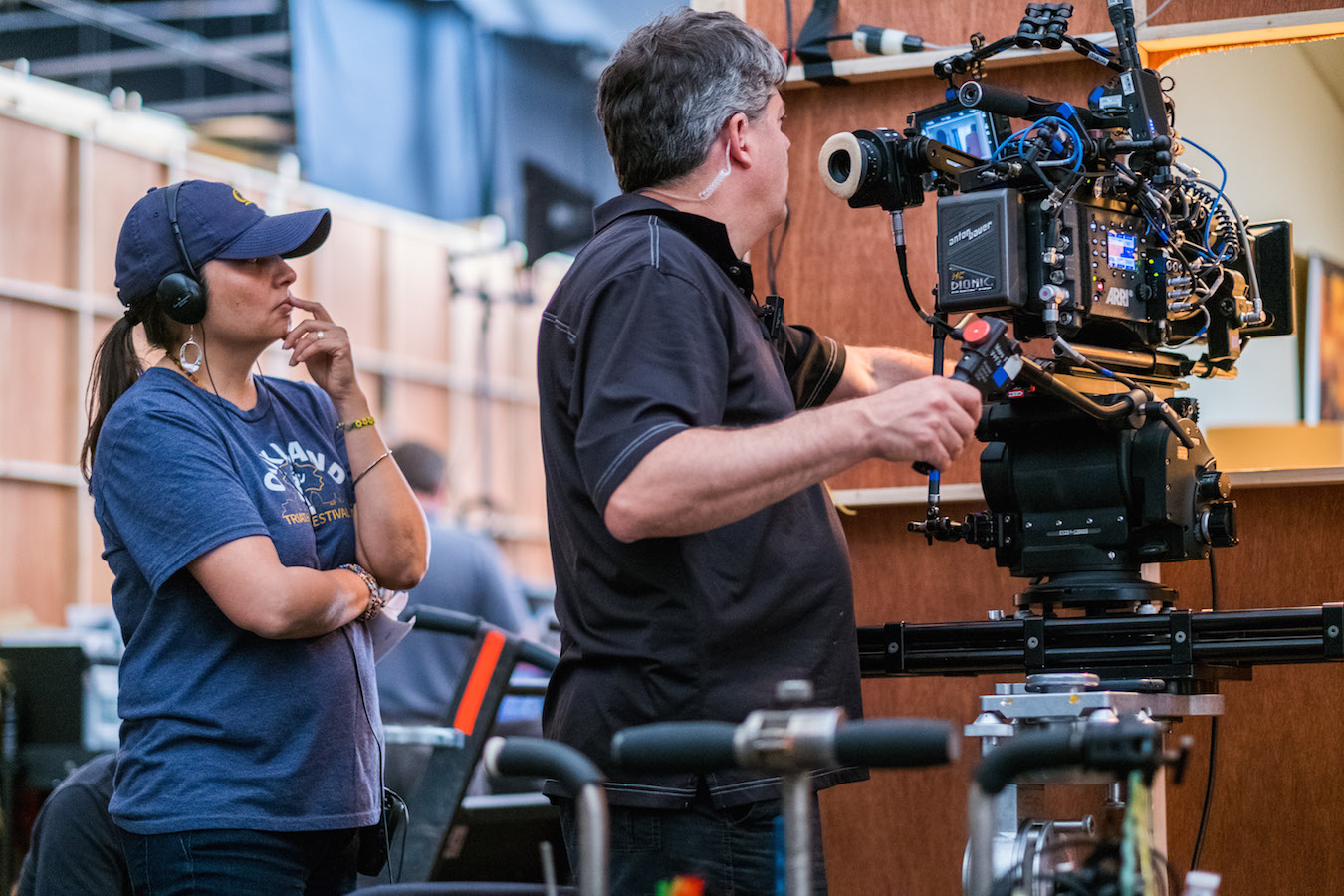
I found the visual elements, particularly the focus on rotating ceiling fans, really striking in this episode.
Yes. The whole fan thing, it’s just…thematically there was this element of drones and being watched, and the surveillance of this family by this other family, the Boudreauxs and the Landrys. And the propellers of the drone started to just live in my head. And so I started thinking about fans, and it just started to come in that way where to me it had a little bit more of consistency throughout the episode where I could bring that in. And maybe people aren’t thinking, “Oh, propellers from the drone and the fans over Vi.” I don’t know if people are making those connections. But I was definitely thinking of that throughout. So, yeah, just thinking thematics, talking to the writers, and I was asking them about things and things I was thinking about, and that’s the kind of subtext that allows us to play and to create these worlds and talk to the characters about. That’s all the fun stuff, that the director is allowed to play with.
Most of your work has been central to California. What was it like transporting yourself to Louisiana this time around?
It was exciting. When I made Mosquita y Mari, it was originally set in the San Francisco Bay Area, which is where I was born and raised. And areas that I know really, really well. And midway through the development of the project I discovered that I wasn’t going to be able to shoot at home, that I had to find another home to shoot at. Because the San Francisco area is too expensive. And I had been living in L.A. for a few years and decided that I was going to set it in L.A. But really, that community of southeast L.A. was completely new to me. And it was this really awesome, beautiful process that I was engaging in where although I was coming into a Latino community and me being Latina, there are things I can connect to. But there was so much to discover. But in that sense of getting to know that community was really inspiring me artistically where the world that these characters lived in was becoming a character, you know. Filmically, I wanted audiences to feel the character of this place, that it had this presence, had its identity and was informing who these characters are and vice versa.
And I feel that part of me, as an artist, is drawn to worlds. Be it subcultures or different communities that I’m not necessarily a part of. So it was very exciting for me to then be transported to the world of Louisiana and rural areas of New Orleans and being in this very specific world that is black and the mixture of the rural and the urban, the sugarcane farming, all of that. To me there is so much beauty that aesthetically and physically I wanted to capture and was inspired by. And it was definitely a motivator, for me, as I was putting together shots or location scouting and taking in the environment.
The only thing that was different for me was that if this were a feature film, I would have been entrenched in the community for a while, getting to know folks, establishing a relationship with folks and trying to, you know, build respect and some of sort…the realities of communities. But obviously I couldn’t do that, but Ava’s done that work. I knew that I was coming into a space where there is that dialogue already. Louisiana, the areas we’re shooting in. But it was great, I loved it. The specificity of that place is exciting.
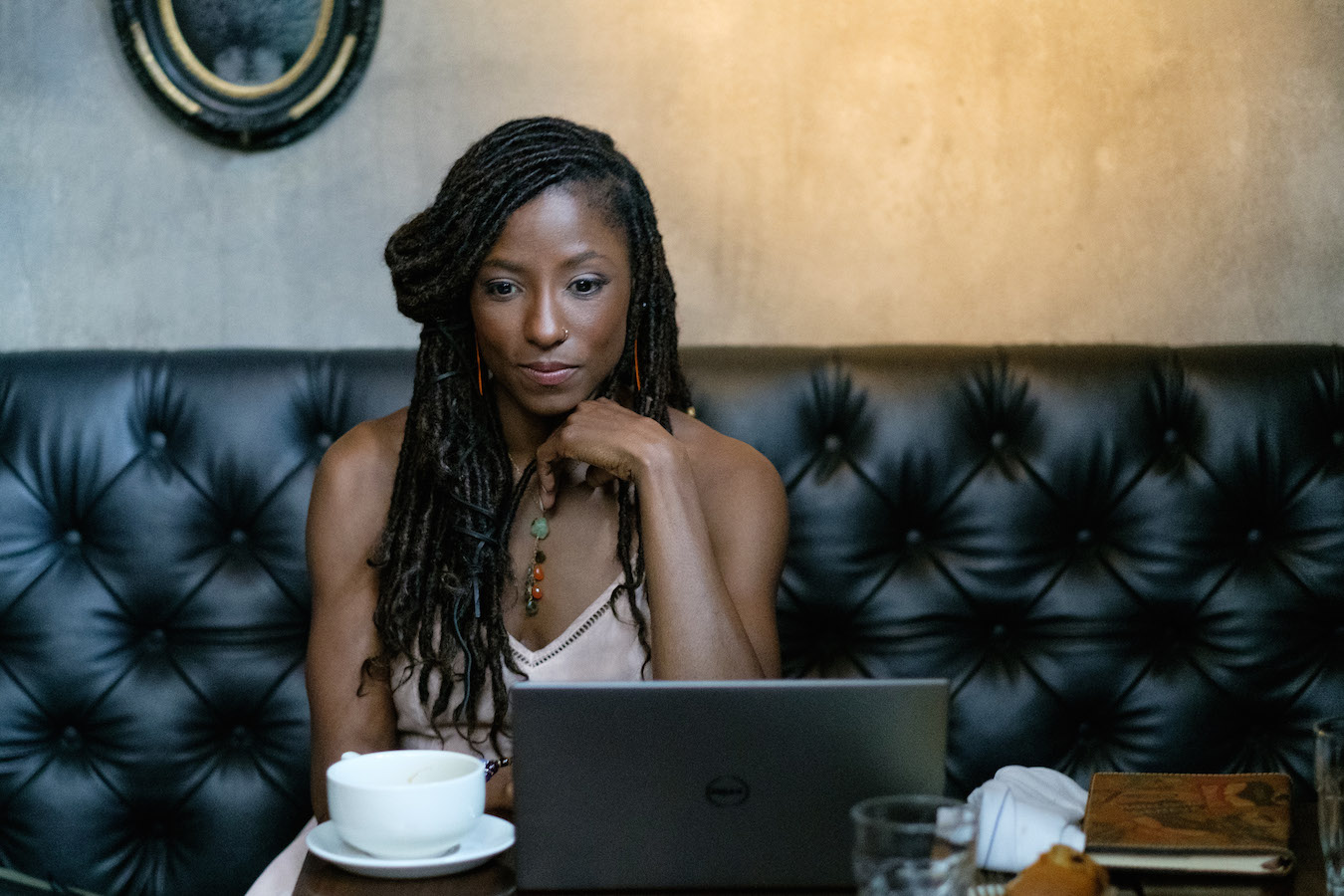
Did this experience make you more inclined to work in TV in the near future, or do you want to do more features now?
“I am actually starting to have meetings with other TV shows that my manager, who I just recently signed with [set up], thanks to stuff that’s been going on recently with Queen Sugar.”
Well, I definitely hope to have more opportunities to do television. And I hope that they are as good as this was for me. I know that there is television that is as smart and exciting as Queen Sugar; there are other shows out there that offer that and I’m hoping to be able to land in those spaces, because I want to be attached to things that are interesting and exciting and challenging. And not only what they’re saying content-wise but that they’re also pushing the medium. Like, those are really exciting things for me as an artist, so I’m not just, you know, someone who is work for hire where I’m just coming in, putting in my hours, getting paid and I’m out. I’m actually really challenged and engaged as an artist, and I felt that on Ava’s show that I grew, that I learned, and that I was able to implement some of my own things and could say that i’ve grown and evolved since Mosquita y Mari.
So I hope that I get to continue to do things like this in the television world. It was also really nice to be in the director’s saddle where I’m just like, man, I have grown a lot. I have a lot to offer. I really want to do another feature film. Because I want to show my audiences how much I’ve grown. I’m a huge fan of [Pedro] Almodóvar, and part of why I love him is that you can see, if you watch his first films to his recent films, how he continues to grow as an artist. And as an audience I love participating in that with him, where I get to see how he’s evolving and his voice is sort of growing, his eye’s improving, and that’s sort of how I see myself and how I’m hoping my audiences might wanna grow with me. But yeah, I want to do it all. I just want to do things that are meaningful to our world at the same time. I don’t want to do something just to get paid that is purely entertainment. I want to entertain and inspire and educate and challenge and all that kind of stuff. So that’s sort of my dream. And I walked away from Ava’s show going, “I can have this.” So I’m going to keep looking and hope to continue it.
What’s next for you?
I am actually starting to have meetings with other TV shows that my manager, who I just recently signed with [has set up], thanks to stuff that’s been going on recently with Queen Sugar. So I’m going out and seeing what I can land next and I am also writing, working on my second feature. Which has been kicking my ass because it just keeps changing [laughs] and that’s okay, because that’s what it wants to do.
Changing in a good way?
Changing in a good way, but I keep pulling my hair out around it. But yes, it’s always in a good way. If I showed you the first draft of Mosquita y Mari and showed you what we ended up shooting, you’d be like, “Wow, it changed a lot but it changed for the better.” That’s what I’m doing with it. I’m just growing with it.
Queen Sugar airs Wednesdays at 10 p.m. on OWN.




